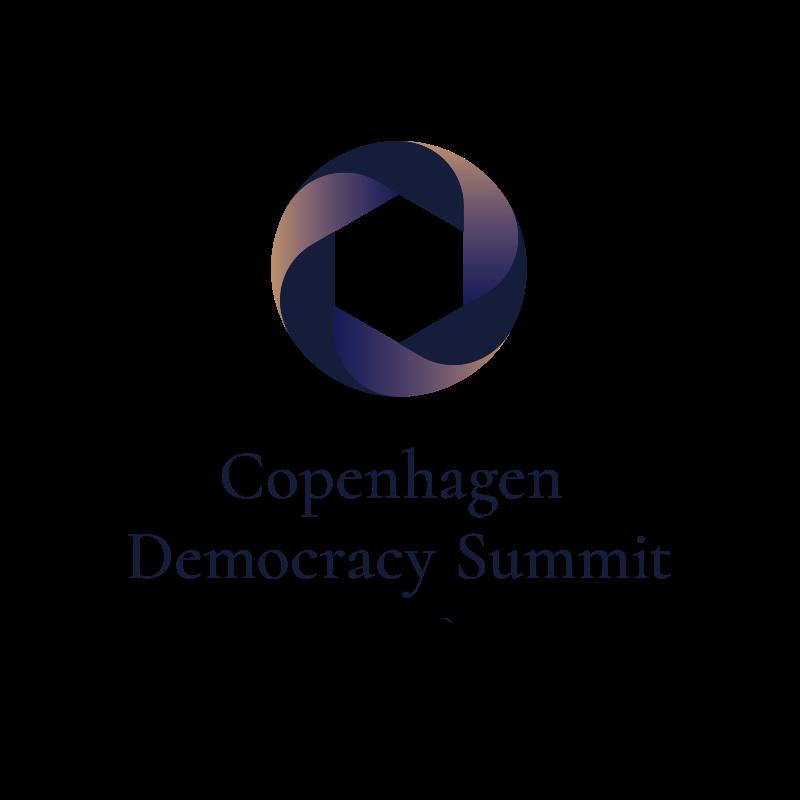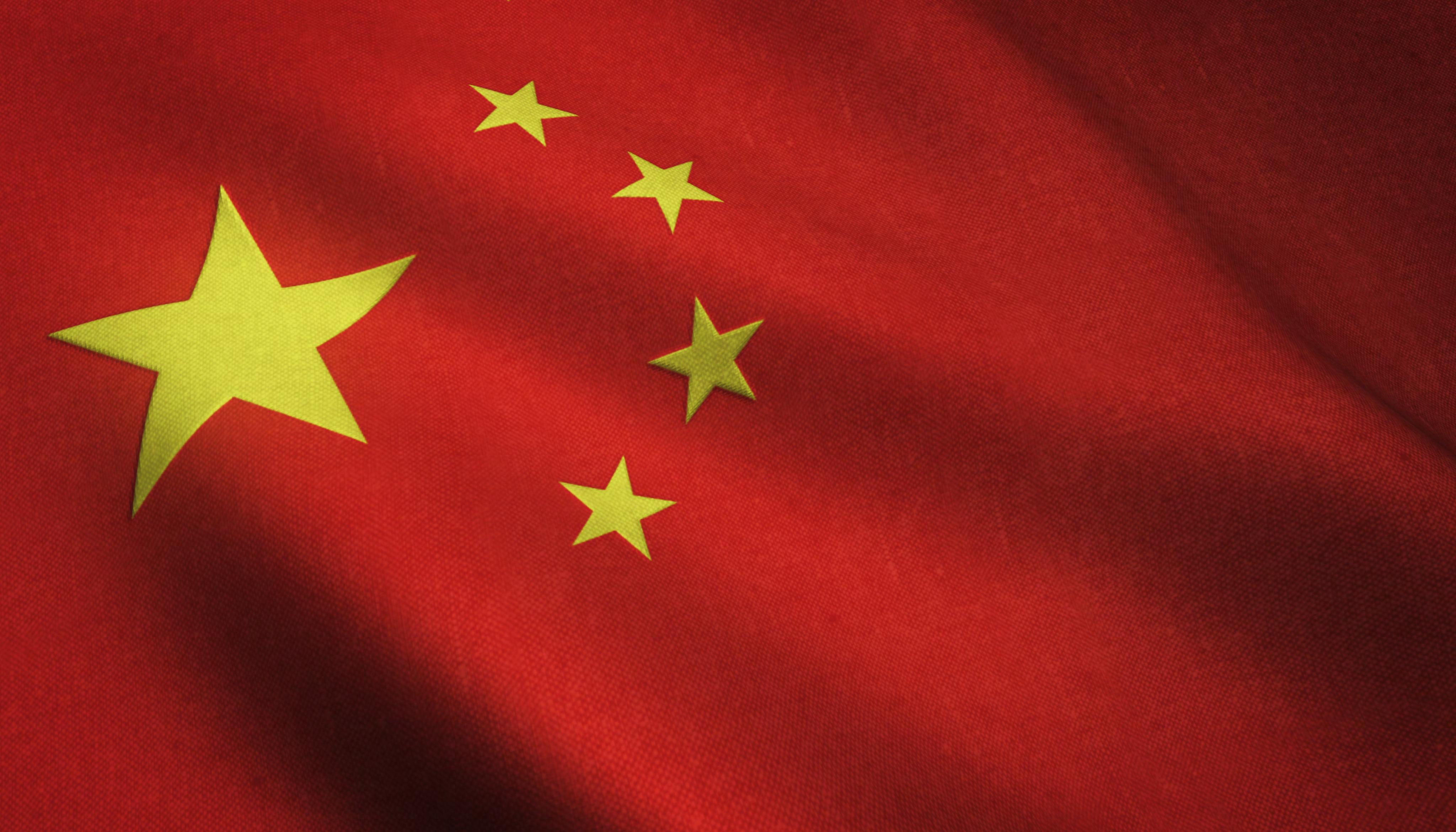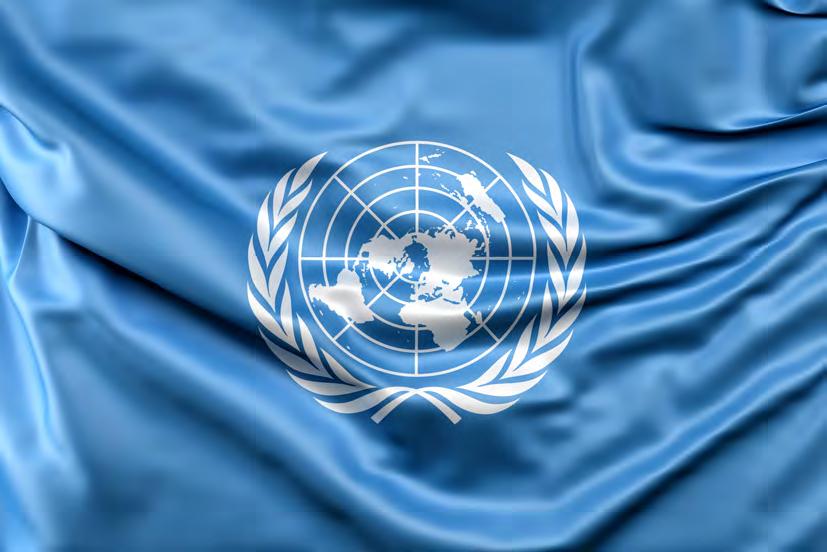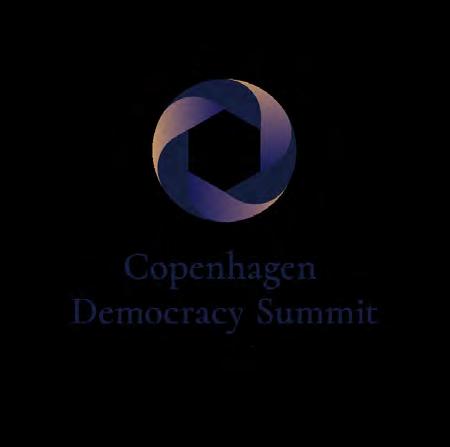PerceptionDemocracy Index 2023
The world’s largest annual study on how people perceive democracy




The Democracy Perception Index (DPI) is the world’s largest annual study on how people perceive democracy, conducted by Latana in collaboration with the Alliance of Democracies. The 2023 edition offers an unprecedented comparison of global attitudes towards democracy since the beginning of the COVID crisis. Results are based on nationally representative interviews with over 53,970 respondents from 53 countries conducted between February 7th and March 27th, 2023.
53,970 respondents 53 countries
Feb 7th - March 27th, 2023
75% of the global population represented
The DPI was published ahead of the 2023 Copenhagen Democracy Summit to support the discussion on the global state of democracy.
Dr. Nico Jaspers CEO at Latana© 2023 Latana
Frederick DeVeaux Senior Researcher Ekaterina Golovanova Graphic Design LeadCHAPTER I
Foreword Executive Summary State of Democracy
Importance of Democracy Democracy Today
Perceived Democratic Deficit Desire for More Democracy Government Accountability
CHAPTER II
CHAPTER III
CHAPTER IV
Threats to Democracy
Threats to Democracy Economic Inequality Corruption Global Corporations Free Speech Limitations Unfair Elections Big Tech
Foreign Election Interference Social Media Influence
Threats to Democracy in America Government Priorities Climate Change
Global Politics
Perception of Global Powers US Impact on Democracy
Economic Ties with Russia Economic Ties with China Russia-China Relations
Assistance to Ukraine World Challenges Prioritizing Climate Change
Democracy under COVID
Government Response COVID Restrictions
Methodology About Latana About the Alliance of Democracies Questionnaire
The Democracy Perception Index 2023 was published ahead of the 2023 Copenhagen Democracy Summit to support the discussion on the global state of democracy.

In every country people are calling for more democracy. Putin’s brutal invasion of Ukraine shows that we can never take freedom and democracy for granted. We must do more to protect and promote the civic rights, individual liberty, and basic democratic principles. First and foremost, we must strengthen our support for all those around the world fighting for a democratic future. But leaders of certain democratic societies will also have to address the population’s dissatisfaction with the lack of democracy in their countries.
Anders Fogh Rasmussen, Chair of the Alliance of Democracies Foundation, former NATO Chief, and Danish Prime Minister

The world remains united about the importance of democracy and the need to support Ukraine. But there's a clear dividing line when it comes to bearing the economic cost of doing so. Most countries in the global south still see hunger and poverty as the world's biggest challenge, and economic inequality as the biggest threat to democracy. The West should not forget that global development and creating economic opportunities for everyone are also key ingredients to promoting democracy around the world.
Dr.Nico Jaspers, CEO at Latana


The Democracy Perception Index (DPI) aims to understand how people around the world perceive the state of democracy in their country today and the major challenges that lie ahead. It is the largest annual study on people’s perception of democracy, spanning 53 countries that represent over 75% of the world’s population.
Faith in democracy has remained high across the globe over the past five years, with 84% saying that it’s important to have democracy in their country. When it comes to key components of democracy, the results are even more clear: over 90% say freedom of speech, fair elections and equal rights are important to have in their country - a result that is similar in most democratic and non-democratic countries.
Governments, however, are not seen to be living up to the democratic expectations of their citizens: only a little more than half of the people that we polled are satisfied with the state of democracy in their country (57%). The dissatisfaction is not limited to non-democratic countries, but is also very prevalent in the US, Europe and in other countries with a long democratic tradition.
Economic inequality is still perceived to be the number one threat to democracy worldwide, (69%), followed by corruption (68%) and the influence of global corporations (60%). About half of the people around the world, in both democratic and non-democratic countries, feel that their government is acting only in the interest of a small group of people.
Americans are growing more and more concerned about threats to their democracy. Since 2021, fear of unfair elections has increased most dramatically in the US (from 49% to 61%), but economic inequality remains the top perceived threat (from 61% to 69%).
When it comes to social media platforms and their impact on democracy, people are divided: in Europe and North America, a large majority of people view social media platforms as having a negative or mixed impact on democracy. In most other countries, however, people have a more positive view.
Overall, war and violent conflicts are currently seen as the most important global challenges, followed by poverty and hunger, and climate change. But there are important differences across regions: in Europe and Asia, people are primarily concerned about war and conflict, while the rest of the world is concerned about poverty and hunger.
At the national level, most people want their governments to focus more on poverty reduction, corruption and economic growth. However there are strong regional differences in priorities: Europe and the United States are much more likely to want their government to prioritize improving healthcare, fighting climate change, and reducing immigration than countries in Asia and Latin America, where fighting corruption and promoting growth are more important.
Despite 32% of the world saying that climate change is one of the world’s top three biggest challenges, only 15% of people say fighting climate change should be among the top-three priorities for their government.
Geopolitics
Support for cutting economic ties with Russia over its invasion of Ukraine remains high in Europe and the United States even after several rounds of sanctions. But in the rest of the world most people prefer keeping economic ties with Russia.
When asked about cutting economic ties with China if it were to invade Taiwan, the world is also divided between the West and the rest. People in western democracies are generally in favor of cutting ties with China in the event of an invasion. This includes several of China’s largest trading partners: the United States, Japan and Germany. Most other countries, however, have mixed attitudes or clearly prefer keeping ties.
Despite heavy NATO assistance to Ukraine over the past year, one third of the global population still says that “too little” has been done to assist Ukraine, and roughly half say that the assistance has been the “right amount” (48%). A much smaller share (17%) says that “too much” has been done to assist Ukraine.
People in almost all countries surveyed have positive perceptions of the European Union, the United Nations and the United States, and negative perceptions of Russia. While perceptions of Russia are still overwhelmingly negative in most western democracies, they are less so than they were in the early days of the war in the Spring of 2022.
When it comes to perceptions of China, the world is divided: western democracies, particularly the United States, European countries, Australia, Japan and South Korea, have negative views of China, while the rest of the world has more mixed or positive views.
The United States is seen as having a positive influence on global democracy by most countries around the world, particularly in Latin America, Asia and several Eastern European countries such as Poland and Ukraine. The US’s impact on global democracy is seen more critically in Western European countries, however, where attitudes are mixed or even slightly negative.
Public attitudes between China and Russia are very positive and reciprocal: people in both countries have positive views of each other’s country, and the vast majority of people prefer keeping economic ties. Both populations also share very negative attitudes towards the United States and are the only two countries surveyed to have generally negative perceptions of the European Union.
Despite relatively high levels of satisfaction with their governments’ response to Covid, the concern that governments have limited freedoms too much during the pandemic is still high and widespread, with a little over half of respondents globally expressing concern (56%), both in democratic and less democratic countries.
Despite the 17th consecutive year of decline in global freedom according to Freedom House, the vast majority of people worldwide consistently say that democracy is important to have in their country (84%).
Across the 53 countries surveyed in the Democracy Perception Index (DPI) study, an average of 84% of people say that democracy is important to have in their country, ranging from 94% in the birthplace of democracy, Greece, to 61% in Japan. This is a majority opinion in all countries.
Over the last five years, global faith in democracy has remained consistently high.
% say that it is important to have democracy in their country
When asked how democratic people think their country currently is, only about half the world (57%) says that their country is actually democratic. This is true even in democracies labeled as “free” by Freedom House, where only 58% say that their country is democratic.
key findings
Only about half the world (57%) says their country is democratic
The countries considered most democratic by their citizens are India, Taiwan, and South Korea.
Out of all countries labeled as “free” democracies by Freedom House, Poland is considered the least democratic by its people (40%).
How the DPI categorizes democracies: In order to compare public opinion results between more democratic countries and less democratic countries, the DPI uses the 2023 categories from Freedom House to create two groups: "Free" - the most democratic countries, labeled as "Free" by Freedom House "Less Free" - less democratic countries and non-democratic countries, labeled as either "Partially Free" or "Not Free" by Freedom House
To capture public dissatisfaction with the state of democracy, the DPI measures the difference between how important people say democracy is and how democratic they think their country is. This difference is called the Perceived Democratic Deficit. The larger the deficit, the more governments are failing to live up to the democratic expectations of their citizens.
Perceived Democratic Deficit
No country is fully living up to the democratic expectations of its citizensin other words, no country has a Perceived Democratic Deficit of 0. However, some countries are much closer to fulfilling their citizens’ expectations than others.
trend
The Perceived Democratic Deficit has increased significantly in Iran (+15) since 2022.
Across the 53 countries surveyed, 41% of people say there is “not enough democracy” in their country, while 46% say there is the “right amount” and only 13% say there is “too much”.
Dissatisfaction with the level of democracy is highest in Latin America - and lowest in Asia
The feeling that there is “not enough democracy” is highest in Latin America (55%), then Europe (42%), and lowest in Asia (30%).
2022 VS 2023
The feeling that there is not enough democracy has increased most in Iran (+17), Ukraine (+13) and Pakistan (+11) since 2022, and decreased significantly in Mexico ( 9).
Across the 53 countries surveyed, an average of 48% of people say that their government mainly serves the interest of a minorityeven in democracies. This sentiment is most prevalent in the Latin American countries surveyed (63%), the US (58%) and Europe (52%), and least prevalent in Asian countries (32%), particularly China (10%).
% say their government usually acts in the interest of a "small group of people" (minority)
key findings
% say their government acts in the interest of...
% say their government mainly acts in the interest of a small group of people
This chapter provides an overviews of what people in democratic countries see as the biggest threats to democracy.
The results show that out of all the threats listed in the DPI, economic inequality is viewed as the most significant threat among the 43 democracies* surveyed: an average of 69% say that economic inequality threatens democracy in their country.
Do you agree or disagree with the following statements?
“Democracy in my country is threatened by …”
“… economic inequality”
“… the influence of Big Tech companies (Google, Amazon, Apple, Facebook)”
“… limitations on free speech”
“… election interference from foreign powers”
“… unfair elections and/or election fraud” "... corruption"
"... the influence of global corporations" Strongly agree / Somewhat agree / Neither agree nor disagree / Somewhat disagree / Strongly disagree
*Agree includes “Strongly agree” and “Somewhat agree”
*Democracies include countries rated as “Free” and “Partly Free” by Freedom house. Countries rated as “Not Free” are excluded.
The vast majority of people in almost all democracies (69%) say that economic inequality is a threat to democracy in their country.
% agree* that economic inequality is a threat to democracy in their country
The concern with economic inequality is highest in the three African democracies surveyed (81%), followed by the Latin American democracies (77%) and then Asia (68%), and Europe (66%).
Since 2022, concern with economic inequality has increased most significantly in Singapore, Canada, Ukraine, the United States and Switzerland.
*Democracies include countries rated as “Free” and “Partly Free” by Freedom house. Countries rated as “Not Free” are excluded.
“Democracy in my country is threatened by economic inequality” Strongly agree / Somewhat agree / Neither agree nor disagree / Somewhat disagree / Strongly disagree
*Agree includes “Strongly agree” and “Somewhat agree”
Behind economic inequality, corruption was the most cited threat to democracy. A large majority of people in almost all democracies (68%) say that corruption is a threat to democracy in their country.
% agree* that corruption threatens democracy in their country
Kenya
South Africa
Nigeria
Ukraine
Peru
Romania
Greece
Brazil
Portugal
Colombia
Argentina
Pakistan
Hungary
Mexico
Italy
Spain
India
United States
Chile
Philippines
Malaysia
Austria
Israel
Poland
Indonesia
United Kingdom
Taiwan
Ireland
France
Canada
South Korea
Hong Kong
Belgium
Australia
Japan
Netherlands
Singapore
Germany
Switzerland
Morocco
Norway
Sweden Denmark
The concern is particularly high in the three African countries surveyed (91%), and in Latin America (80%).
Since 2022, concern has increased most significantly in Singapore, Switzerland, Hong Kong, Norway and Belgium.
After economic inequality and corruption, global corporations are viewed as the third most significant threat to democracy by people around the world.
In most democracies, a majority of people (60%) say that the influence of global corporations threatens democracy in their country.
Since 2022, concern has increased most significantly in Singapore, Norway, Australia, Hungary and Ukraine.
Concern that free speech limitations are threatening democracy is also widespread across the world’s democracies (57%).
Since 2022, concern has grown most significantly in Switzerland, Norway, Sweden, Indonesia and Australia.
“Democracy in my country is threatened by limitations on free speech"
Strongly agree / Somewhat agree / Neither agree nor disagree / Somewhat disagree / Strongly disagree
*Agree includes “Strongly agree” and “Somewhat agree”
Across the democracies surveyed, about half of the population (54%) says that unfair elections and / or election fraud threatens democracy in their country.
% agree* that unfair elections and/or election fraud threaten democracy in their country
Nigeria
Kenya
Pakistan
Romania
South Africa
Peru
Mexico
Colombia
Hungar y
India
Ukraine
Poland
Hong Kong
Philippines
United States
Indonesia
Brazil
Malaysia
Argentina
Taiwan
Greece
South Korea
Chile
Japan
France
Singapore
Israel Italy
Ireland
Belgium
United Kingdom
Morocco
Canada
Spain
Portugal
Switzerland
Austria
Netherlands
Germany
Australia
Norway
Sweden
Denmark
This fear of unfair elections is much lower in democracies in Europe (47%) than those in Asia (58%), Latin America (62%), or the US (61%)
Since 2022, concern has grown most significantly in Singapore, Switzerland, Norway, Hong Kong and Germany.
“Democracy in my country is threatened by unfair elections and/or election fraud"
Strongly agree / Somewhat agree / Neither agree nor disagree / Somewhat disagree / Strongly disagree
*Agree includes “Strongly agree” and “Somewhat agree”
The next most-cited threat to democracy is the power of Big Tech companies. Half of the people living in democracies (49%) say that the influence of Big Tech companies, such as Google, Amazon, Apple, and Facebook, threatens democracy in their country.
% agree* that the power of big tech companies threatens democracy in their country
India
Philippines
United States
Pakistan
Hong Kong
Ireland
Taiwan
Canada South Korea
United Kingdom
France
Australia
Singapore
Netherlands
Malaysia
Morocco
Mexico
Israel
Switzerland
Spain
Indonesia
Romania
Germany
Portugal
Belgium
Brazil
Norway
Greece
Italy
Austria
Japan
Colombia
South Africa
Chile
Sweden
Peru
Hungar y
Denmark
Ukraine
Argentina
Poland
Nigeria
Kenya
Concern about the influence of Big Tech companies is higher in Asian democracies (57%) than in European (47%) or Latin American (44%) democracies on average.
Out of all the democracies labelled as free by Freedom House, the US has the highest share of people who fear the influence of Big Tech companies (65%).
Since 2022, concern has grown most significantly in Singapore and Norway.
Difference 2022 vs 2023
Singapore Norway
+12 +8
0% 50% 100%
*Democracies include countries rated as “Free” and “Partly Free” by Freedom house. Countries rated as “Not Free” are excluded.

“Democracy in my country is threatened by the influence of Big Tech companies (Google, Amazon, Apple, Facebook)"
Strongly agree / Somewhat agree / Neither agree nor disagree / Somewhat disagree / Strongly disagree
Agree includes “Strongly agree” and “Somewhat agree
The least cited threat to democracy is foreign election interference - yet this still concerns nearly half of all people living in democracies.
% agree* that their democracy is threatened by election interference from foreign powers
This concern is evenly balanced across most regions, but there are some significant differences across countries ranging from Pakistan (75%) down to Japan (29%).
Since 2022, concern has grown most significantly in Singapore, Norway, Sweden, Switzerland and Germany.
*Democracies include countries rated as “Free” and “Partly Free” by Freedom house. Countries rated as “Not Free” are excluded.
“Democracy in my country is threatened by election interference from foreign powers" Strongly agree / Somewhat agree / Neither agree nor disagree / Somewhat disagree / Strongly disagree
*Agree includes “Strongly agree” and “Somewhat agree”
Across the democracies surveyed, more people say that social media platforms have a positive effect on democracy (57%) than negative (28%).
However, there are strong regional divides, and people in Europe and the United States are far more critical of social media’s influence than in Asia or Latin America.
u
Indonesia
Colombia
Malaysia
Morocco
Hong Kong
Argentina
Singapore
Ukraine
Brazil
South Africa
Chile
Taiwan
Romania
Poland
South Korea
Portugal
Spain
Norway
Italy
Ireland
Switzerland
Greece
Japan
Israel
Denmark
France
Sweden
Australia
Belgium
United States
Hungar y
Germany
United Kingdom
Canada
Austria
Netherlands
Overall, do you think that social media platforms (i.e. Facebook, Twitter) have a positive or negative impact on democracy in your country? Very positive / Somewhat positive / Somewhat negative / Very negative / No impact / Don’t know
*Positive includes “Very positive” and “Somewhat positive”.
Americans are evenly divided on the issue, with 43% saying social media has a positive impact and 43% saying that social media has a negative impact.

Since 2020, attitudes towards social media have taken a steep negative decline in most democratic countries, particularly in Europe and the United States. However this decline seems to have ended in many countries in 2023.
Overall, do you think that social media platforms (i.e. Facebook, Twitter) have a positive or negative impact on democracy in your country?
Very positive / Somewhat positive / Somewhat negative / Very negative / No impact / Don’t know
Americans are growing more and more concerned about threats to their democracy. Since 2021, fear of unfair elections has increased most dramatically in the US (49% to 61%), but economic inequality remains the top perceived threat (69%).

k ey f indin
Since 2021, fear of unfair elections has increased most dramatically in the US, but still lags behind concern about inequality
Across the world, people’s top priorities for their government are: reduce poverty, fight corruption, and promote economic growth. These policies are among the top three priorities picked in almost every region of the world, and have not changed globally since 2022.
Which of the following areas do you want your government to focus on more?
Select up to three
Improve education
Fight climate change Promote gender equality Promote economic growth
Reduce poverty
Invest in security and defense
Improve health care
Fight corruption
Reduce immigration
Reduce income inequality Other / none of the above
More people say that reducing poverty should be one of their government’s top three priorities than any other policy listed (39%). This choice is widespread in both “free” and less free countries, as well as all regions around the world.
key findings
Fighting corruption is the second most often cited priority globally (36%). However, it is much more of a top priority for people living in the less democratic countries than for people living in Western Europe.
Fight corruption
Reduce poverty Improve education Improve health care
Reduce income inequality
Promote economic growth

Invest in security and defense
Promote gender equality
Fight climate change
Reduce immigration Other / none of the above
More people in China say that fighting corruption should be one of their government’s top three priorities than any of the other policy areas listed.
Fighting Corruption in China
Similar to fighting corruption, promoting economic growth is much more of a top priority in Asia (39%) and Latin America (42%) than it is in Europe (29%).
When it comes to health care, the pattern is reversed: Europe (41%) and the United states (35%) are far more concerned than countries in Asia (25%) and Latin America (21%).
key findings
has increased most significantly in the following countries: Canada (+8), Spain (+8), United Kingdom (+7), Austria (+7) and Denmark (+5)
One third of people around the world (30%) say that improving education should be one of their government s top three priorities. Education is more of a priority in Latin America (39%) than it is in Asia (30%) or Europe (26%).
Reducing income inequality is much more of a priority in free democracies (27%) than in less democratic countries (20%), and more in Europe (27%) and Asia (25%) than in Latin America (18%).
improving education is seen as a more important priority than reducing income inequality.
key findings
Only 15% of people globally selected “fight climate change as one of their top three priorities for their government. This sentiment is much higher in Western Europe than the rest of the world.
key
Despite increasing global tensions, public desire to invest more in security and defense does not appear to be increasing in many key countries around the world.
2022 2023 Israel Russia Ukraine South Korea Taiwan Poland Germany Japan China France Turkey United States Australia Iran +4 +1 +2 +2 +1 +4 -7 -9 -2 -7 -2 -2 -1 2 0% 25% 50%
Reduce immigration Promote gender equality
Only 11% of people globally select promote gender equality as one of their top three priorities for their government
The share of people who want their government to prioritize gender equality has increased significantly in Iran since 2022, nearly doubling from 13% to 20%. More Iranians now say this should be a priority for their government than any other country surveyed (though it still falls well behind other economic priorities).

Reduce poverty
Promote economic growth
Fight corruption
Reduce income inequality Improve education
Promote gender equality Improve health care
Invest in security and defense
Fight climate change
Reduce immigration
Other / none of the above
Across the 53 countries surveyed, only 15% of the people picked “Fight Climate Change” as one of their top three priorities for their government. There are huge regional differences: 20% in Europe, versus 14% in Asia and 6% in Latin America.
Which of the following areas do you want your government to focus on more?
Select up to three
Improve education
Fight climate change
Promote gender equality
Promote economic growth
Reduce poverty
Invest in security and defense
Improve health care
Fight corruption
Reduce immigration
Reduce income inequality
Other / none of the above
Most people around the world have a positive perception of the European Union (+35), the United Nations (+34), and the United States (+27), and a negative perception of Russia (-19).


perceptions


When it comes to perceptions of China, however, the world is more evenly divided: across all 53 countries, the average share of positive opinions is the same as the negative opinions, resulting in a net perception of 0.


The European Union is viewed positively around the world (+35), with more people saying they have a positive perception of the EU than a negative perception in almost all countries: 51 out of the 53 countries surveyed.

Swede
M
Ukrainians

have the most positive opinion of the EU net negative net positive -1 00 % -5 0 % 0 % 5 0 % 1 00 %
What is your overall perception of the European Union?

Very positive / Somewhat positive / Neither positive nor negative / Somewhat negative / Very negative / Don’t know
*"Positive" includes "very positive" and "somewhat positive".
Attitudes towards the EU have improved in most parts of the world from 2022 to 2023 except for in Europe, where positive attitudes have decreased slightly in several countries.
What is your overall perception of the European Union? Very positive / Somewhat positive / Neither positive nor negative / Somewhat negative / Very negative / Don’t know
*"Positive" includes "very positive" and "somewhat positive".
Russia
Australia
Canada
United States
Egypt
Morocco
Iran
Israel
Turkey
Saudi Arabia
Algeria
Colombia
Peru
Venezuela
Mexico
Brazil
Chile
Argentina
Ukraine
Portugal
Poland
Ireland
Spain
Romania
Norway
Denmark
Sweden
Switzerland
Germany
United Kingdom
Italy
Belgium
Hungary
France
Netherlands
Greece
Austria
Vietnam
India
Pakistan
Philippines
Hong Kong
Thailand
Singapore
South Korea
Taiwan
Malaysia
Indonesia
Japan
China
Nigeria
Kenya
South Africa

Similarly to the European Union, the United Nations is viewed positively around the world (+34), with more people saying they have a positive perception of the UN than a negative perception in almost all countries: 51 out of the 53 countries surveyed.
The United States is also viewed positively around world (+27), with more people saying they have a positive perception of the US than a negative perception in most countries: 48 out of the 53 countries surveyed.

What is your overall perception of the United States?
Very positive / Somewhat positive / Neither positive nor negative / Somewhat negative / Very negative / Don’t know
*"Positive" includes "very positive" and "somewhat positive".
TREND 2022 vs 2023
Positive attitudes towards the United States have increased in most parts of the world from 2022 to 2023, particularly in Asia, Latin America and “Lessfree” countries globally.
In several key US allies, however, attitudes towards the US have become less positive, including Poland, South Korea, Japan and Australia
Russia
Australia
Canada United States
Israel
Morocco
Egypt
Iran
Algeria
Saudi Arabia
Turkey
What is your overall perception of the United States? Very positive / Somewhat positive / Neither positive nor negative / Somewhat negative / Very negative / Don’t know
*"Positive" includes "very positive" and "somewhat positive".
Colombia
Venezuela
Brazil
Peru
Mexico
Chile
Argentina
Ukraine
Poland
Romania
Portugal
Denmark
France
Norway
Switzerland
United Kingdom
Italy
Netherlands
Ireland
Sweden
Germany
Spain
Belgium
Hungary
Greece
Austria
India
Vietnam
Philippines
Pakistan
Hong Kong
Thailand
South Korea
Taiwan
Singapore
Japan
Malaysia
Indonesia
China
Nigeria
Kenya
South Africa
Views towards China divide the world: western democracies, particularly the United States, European countries, Australia, Japan and South Korea, have negative views of China, while the rest of the world has more mixed or positive views.

What is your overall perception of China?
Very positive / Somewhat positive / Neither positive nor negative / Somewhat negative / Very negative / Don’t know *"Positive" includes "very positive" and "somewhat positive".
Attitudes towards China are much more positive in democratic countries labeled as “free” by Freedom House, than in less democratic countries labeled as “less free”.
People around the world are divided about their views towards China, with an identical share of people saying they have a positive opinion as negative opinion. Perceptions of China are much more negative in Europe and the United States than in the rest of the world, where they are either mixed or positive.
TREND
Perceptions of China have taken a slight positive turn from 2022 to 2023 around the world.
The countries with the most positive increases are South Korea (+34), Vietnam (+25), Singapore (+23) and Turkey (+23), while the countries with the most negative changes are Iran (-10) and Ukraine (-20).
What is your overall perception of China?
Very positive / Somewhat positive / Neither positive nor negative / Somewhat negative / Very negative / Don’t know
*"Positive" includes "very positive" and "somewhat positive".
Russia
Australia
Canada
United States
Algeria
Morocco
Egypt
Saudi Arabia
Turkey
Israel
Iran
Mexico
Peru
Colombia
Venezuela
Chile
Argentina
Brazil
Romania
Ukraine
Greece
Switzerland
Hungary
Poland
Norway
Italy
Ireland
Netherlands
Portugal
Denmark
France
Spain
Belgium
United Kingdom
Germany
Austria
Sweden
China
Pakistan
Singapore
Hong Kong
Thailand
Malaysia
Vietnam
Indonesia
Philippines
India
Taiwan
South Korea
Japan
Nigeria
Kenya
South Africa
Most countries have negative views of Russia. The only countries with a positive perception of Russia are in Asia or the Middle East, led by Russia, India and China. Collectively, however, these countries represent a majority of the world’s population.

net perception of Russia: % positive - % negative
Russia
India
China
Algeria
Pakistan
Vietnam
Egypt
Indonesia
Turkey
Saudi Arabia
Hong Kong
Philippines
Malaysia
Morocco
Nigeria
Mexico
Singapore
Thailand
Peru
Venezuela
Kenya
Colombia
Switzerland
Greece
South Africa
South Korea
Chile
Taiwan
Argentina
Hungar y
United States
Romania
Brazil
Italy
France
Iran
Norway
Israel
Austria
Belgium
Canada
Netherlands
Germany
Ireland
Sweden
Australia
United Kingdom
Denmark
Spain
Japan
Poland
Portugal
Ukraine
What is your overall perception of Russia?
Very positive / Somewhat positive / Neither positive nor negative / Somewhat negative / Very negative / Don’t know *"Positive" includes "very positive" and "somewhat positive".
People in western democracies, particularly in Europe and America, have the most negative perceptions of Russia.
While most countries in 2023 still have a negative view of Russia, attitudes are far less negative than they were one year ago.
This decline in negative attitudes occurred in almost all countries, even in the western democracies that remain the most critical of Russia.
What is your overall perception of Russia? Very positive / Somewhat positive / Neither positive nor negative / Somewhat negative / Very negative / Don’t know
*"Positive" includes "very positive" and "somewhat positive".
Russia
Australia
Canada
United States
Algeria
Egypt
Saudi Arabia
Turkey
Morocco
Israel
Iran
Mexico
Peru
Venezuela
Colombia
Chile
Argentina
Brazil
Greece
Switzerland
Hungary
Romania
Italy
France
Norway
Austria
Netherlands
Belgium
Germany
Ireland
Sweden
Denmark
United Kingdom
Spain
Poland
Portugal
Ukraine
India
China
Pakistan
Vietnam
Indonesia
Hong Kong
Philippines
Malaysia
Singapore
Thailand
South Korea
Taiwan
Japan
Nigeria
Kenya
South Africa
Across the 53 countries surveyed, an average of 51% of people say that the United States has a positive impact on democracy around the world, while 33% say it’s negative.
findings
On one hand, many developing countries, particularly in Latin America and Eastern Europe, have overwhelmingly positive assessments of the US’s impact.
On the other hand, Russia, China, and Greece have the most negative perceptions.
And lastly, in most Western European countries, as well as in Canada and Australia, opinion is very evenly divided.
Over the past three years, from 2020 to 2023, perceptions of US's global influence have become slightly more positive around the world, especially across Europe.
When asked if they think their countries should cut economic ties with Russia over its invasion of Ukraine, western democracies are more in favor of cutting ties than keeping ties. The rest of the world however has mixed opinions or would rather keep ties.
Do you think your country should cut economic ties with Russia because of the war in Ukraine? Yes / No / Don’t know [Question excluded in Russian questionnaire] “Cut ties” = “Yes”, “Keep ties = “No”.
key findings
Western democracies, particularly Europe and the US, have far more people willing to cut ties with Russia than keep ties with Russia. The rest of the world however has mixed opinions or would rather keep ties.
When asked if they think their countries should cut economic ties with Russia over its invasion of Ukraine, people in 23 out of the 52 countries surveyed are more in favour of cutting ties than keeping ties.
net support for keeping economic ties with Russia: % keep ties - % cut ties
and Greece are the only countries in Europe where more people prefer to keep ties with Russia
Do you think your country should cut economic ties with Russia because of the war in Ukraine?

Yes / No / Don’t know [Question excluded in Russian questionnaire]
“Cut ties” = “Yes”, “Keep ties = “No”.
2023
Support for cutting economic ties with Russia over its invasion of Ukraine remains high in Europe and the United States even after several rounds of sanctions. Yet this support is weaker now than it was one year ago, in the spring of 2022.
Several countries have shifted from preferring to cut ties to now preferring to keep ties. These countries include: South Korea, Singapore, India, Brazil and Chile.
Almost all countries in Latin America, Asia and the MENA region prefer keeping ties with Russia, while almost all countries in Europe still prefer cutting ties.
Do you think your country should cut economic ties with Russia because of the war in Ukraine?
Yes / No / Don’t know [Question excluded in Russian questionnaire]
“Cut ties” = “Yes”, “Keep ties = “No”.
Australia
Canada
United States
Algeria
Turkey
Morocco
Egypt
Israel
Saudi Arabia
Iran
Mexico
Peru
Colombia
Chile
Brazil
Argentina
Venezuela
Hungary
Greece
Austria
Italy
Romania
France
Switzerland
Belgium
Germany
Portugal
Ireland
Netherlands
Norway
Spain
Sweden
United Kingdom
Denmark
Poland
Ukraine
China
Indonesia
Vietnam
Philippines
Malaysia
Singapore
South Korea
India
Thailand
Pakistan
Hong Kong
Taiwan
Japan
Kenya
Nigeria
South Africa
In 26 out of the 52 countries surveyed, more people say they would be in favour of their country cutting economic ties with Chinaif it invaded Taiwan - than keeping ties. These countries include many of China’s top trading partners such as the United States, Japan, and Germany.
If China invades Taiwan, half of the world would want to cut economic ties
People in western democracies are generally in favor of cutting ties with China in the event of an invasion. Most other countries, however, have mixed attitudes or clearly prefer keeping ties.

If China started a military invasion of Taiwan, do you think your country should cut economic ties with China?
/ No /
know [Question excluded in China, Taiwan, and Hong Kong]
Many of China s largest trading partners are among the countries where more people would rather cut ties than keep ties.
TREND 2022 vs 2023
Since 2022, attitudes towards economic ties with China have stayed relatively stable across most of the globe. The countries where opinions have shifted in the direction of keeping ties are South Korea, Singapore and Vietnam.
Attitudes in a handful of European countries have also shifted in this direction, but remain still in favor of cutting ties: Germany, Norway, Ireland, the United States and the United Kingdom.
If China started a military invasion of Taiwan, do you think your country should cut economic ties with China?
Yes / No / Don’t know [Question excluded in China, Taiwan, and Hong Kong]
“Cut ties” = “Yes”, “Keep ties = “No”.
Russia
Australia
Canada
United States
Algeria
Turkey
Morocco
Israel
Egypt
Saudi Arabia
Iran
Mexico
Peru
Colombia
Chile
Argentina
Brazil
Venezuela
Hungary
Greece
Romania
Austria
Switzerland
Belgium
Germany
France
Norway
Italy
Netherlands
Ireland
Portugal
Poland
Ukraine
Spain
United Kingdom
Denmark
Sweden
Indonesia
Singapore
Vietnam
Pakistan
Malaysia
Thailand
South Korea
Philippines
India
Japan
Kenya
Nigeria
South Africa
Public attitudes in Russia and China about each other’s countries are very positive and share much in common.
Both the Russians and Chinese hold very favorable views of


They both overwhelmingly support keeping economic ties
They both hold the world’s most negative perceptions of the
Across the 52 countries, around one third (35%) of the respondents say that the US, EU, and NATO have done too little to assist Ukraine during the Russian invasion, while the remaining half say that they have done the right amount (48%) and 17% say they’ve done too much.

The countries that are the most likely to say that the US, the EU, and NATO have done too little to assist Ukraine during the Russian Invasion are mainly in countries in Latin America (53%). China is the only country where more people say that the US, EU and NATO have done “too much” (47%) than the “right amount” (44%).
According to people around the globe, the world’s top challenges are “war and violent conflict”, followed by “poverty and hunger” and “climate change”. These concerns differ across regions, with Europe and Asia more concerned about war, and the rest of the world more concerned about poverty and hunger.
While climate change is viewed as one of the world’s top three biggest challenges by 32% of the world’s population, only 15% say that it should be a top priority for their government. People in western democracies, particularly in Europe, are the most likely to both perceive climate change as a major global challenge and as a top priority for their government.
In your opinion, which of the following do you think are the world’s top three biggest challenges right now? Climate change / War and violent conflict / Poverty and hunger etc
Which of the following areas do you want your government to focus on more? Fight climate change / Improve education / Promote gender equality etc
Many people think climate change is one of the world's top challenges. But far fewer say it should be a top priority for their government.
Across all 53 countries surveyed, an average of 72% say that their country is responding well, ranging from 92% in Vietnam to 42% in Iran. While the majority of people are satisfied, Europe and the United States lag slightly behind the rest (63%).
key findings
Three years since the start of the pandemic, people around the world are growing more and more satisfied with their government’s handling of the COVID crisis. This represents a remarkable increase in public satisfaction from the lowest points in 2021, particularly in Europe and Latin America where attitudes were least positive in 2021 (under 50%) and have now rebounded up to 63% and 79% respectively.
In the first year of the pandemic, from the Spring of 2020 to the Spring of 2021, people grew less satisfied with their government’s response to COVID. Yet over the next two years, satisfaction has rebounded. Today a majority of people in almost all countries around the world are satisfied with their government’s response to COVID.
How well do you think your country is responding to the coronavirus (COVID-19) crisis?
Very well / Somewhat well / Somewhat poorly / Very poorly / Don’t know
*Well includes “Very well” and “Somewhat well”
% say that their country is responding well to the COVID 19 crisis
Despite increasing satisfaction with how governments are handling COVID, the majority of people around the world are still worried that their government has done too much to limit basic freedoms. While this concern is higher in less democratic countries (60%), it is still as high as 53% in “free” democracies.
% agree that their government has gone too far in limiting people's freedoms during COVID
Perception of violated freedoms is most prevalent in less democratic countries
Venezuela
Turkey
Romania
Colombia
Algeria
Mexico
Ukraine
Poland
Thailand
France
Israel
Netherlands
Singapore
Switzerland
Germany
Spain
South Korea
Brazil
Indonesia
United States
Portugal
Norway
Ireland
Vietnam
Russia
Denmark
Belgium
Hungar y
United Kingdom
Canada
a
n Sweden
Do you agree or disagree with the following statement: “My government has done too much to limit people’s freedoms during the coronavirus crisis” Strongly agree / Somewhat agree / Neither agree nor disagree / Somewhat disagree / Strongly disagree
*Agree includes “Strongly agree” and “Somewhat agree”
This report presents an overview of a study conducted by Latana and the Alliance of Democracies in the spring of 2023, between February 7th and March 27th. The sample of n=53,970 online-connected respondents was drawn across 53 countries, with an average sample size of around 1,000 respondents per country. Nationally representative results were calculated based on the official distribution of age, gender, and education for each country’s population, sourced from the most recent and available data from Barro Lee & UNStat, and census.gov. The average margin of error across all countries sampled is (+/-) 3.1 percentage points.
In order to compare public opinion results between more democratic countries and less democratic countries, the DPI uses the 2023 categories from Freedom House to create two groups: "Free" - the most democratic countries, labeled as "Free" by Freedom House. "Less Free" - countries labeled as "Partly Free" or "Not Free" by Freedom House.
In some countries surveyed, the government plays an active role in shaping public opinion and/or has policies in place that restrict freedom of speech around certain topics. This can have a strong influence on the survey results.
Here are the full summary tables of the results used in this report: (DPI 2023 - Topline Results)
Latana’s surveys are conducted online through internet-connected devices, such as smartphones, tablets, and computers. Latana follows an open recruitment approach that leverages the reach of over 40,000 third-party apps and mobile websites. To ensure coverage across different demographic groups and geographical regions, Latana targets a highly diverse set of apps and websites – from news to shopping, to sports and games. As a result, Latana generates up to 21 million answers every month from respondents living in as many as 100 different countries.
Once a user opts in to complete a survey, Latana informs the respondent about the nature of the questionnaire and explains that all answers – including the generic demographics that are part of the targeting and quality assurance process – are recorded anonymously. To ensure respondent privacy and high-quality response data, Latana does not collect any personally identifiable information (PII) on users. In contrast to surveys conducted face-to-face or by telephone, the anonymity offered by Latana’s methodology may help reduce response bias, interviewer bias, and respondent self-censorship.
For more information, please contact:
Frederick DeVeaux Senior Researcher at Latana frederick.deveaux@latana.comLatana is an AI-Powered brand tracking solution that leverages key insights to help companies track their brand and campaign performance. An international market leader in brand tracking services, Latana also uses its technology to understand the underlying forces behind the opinions of people worldwide.
We are proud to pioneer advanced machine learning technology that has access to billions of consumers around the globe. This enables us to quickly understand consumer perception, and thus predict consumer behavior - the cornerstone of brand value.
For General Inquiries: hello@latana.com
For Sales: sales@latana.com
For PR/Partnerships: marketing@latana.com
latana.com
Our vision is to lead the development of a new generation of research technologies that enable us to better understand the needs, desires and preferences of people around the world.
The Alliance of Democracies Foundation is a non-profit organization founded in 2017 by Anders Fogh Rasmussen. The Foundation is dedicated to the advancement of democracy and free markets across the globe and runs three core programs: the Copenhagen Democracy Summit, the Expeditionary Economics Program, and the Campaign for Democracy.


The Copenhagen Democracy Summit is an annual conference bringing together political and business leaders, including current and former heads of government, from the world’s democracies. The goal of the Summit is to be the top international forum for analysis of the security and economic challenges facing the democratic world as well as a forum for analysis of the interplay between technology and democratic norms.
General Inquiries: info@allianceofdemocracies.org
Press Inquiries: media@allianceofdemocracies.org
www.allianceofdemocracies.org
With a special sponsorship from the University of Denver
Q1
In your opinion, how important is it for your country to be a democracy?
Slider: 0 - not at all important; 10 - very important
Q2
Think about your country today.
How democratic do you think it is?
Slider: 0 - not at all democratic; 10 - very democratic
Q3
Which of the following statements comes closest to your view?
I think there is not enough democracy in my country I think there is the right amount of democracy in my country
I think there is too much democracy in my country
Q4
How important is it for you that everyone in your country can freely express their opinion on political and social topics?
Very important
Somewhat important
Somewhat unimportant
Very unimportant
Don’t know
Q5
Think about your country today. Do you agree or disagree with the following statement: “Everyone in my country can freely express their opinion on political and social topics”?
Strongly agree
Somewhat agree
Neither agree nor disagree
Somewhat disagree
Strongly disagree
Q6
How important is it for you that political leaders in your country are elected in free and fair elections?
Very important
Somewhat important
Somewhat unimportant
Very unimportant
Don’t know
Q7
Think about your country today. Do you agree or disagree with the following statement: “Political leaders in my country are elected in free and fair elections”?
Strongly agree
Somewhat agree
Neither agree nor disagree
Somewhat disagree
Strongly disagree
Q8
How important is it for you that everyone in your country is equal before the law and has the same basic rights?
Very important
Somewhat important
Somewhat unimportant
Very unimportant
Don’t know
Q9
Think about your country today. Do you agree or disagree with the following statement: “Everyone in my country is equal before the law and has the same basic rights”
Strongly agree
Somewhat agree
Neither agree nor disagree
Somewhat disagree
Strongly disagree
Q10
# Which of the following statements comes closest to your view?
“My government usually acts in the interest of…”
… most people in my country
... a small group of people in my country
Q11
Which of the following areas do you want your government to focus on more?
Select up to three
Improve education
Fight climate change
Promote gender equality
Promote economic growth
Reduce poverty
Invest in security and defense
Improve health care
Fight corruption
Reduce immigration
Reduce income inequality
Other / none of the above
# Do you agree or disagree with the following statements? # “Democracy in my country is threatened by …”
Q12
“… economic inequality”
Strongly agree
Somewhat agree
Neither agree nor disagree
Somewhat disagree
Strongly disagree
Q13
“… the influence of Big Tech companies (Google, Amazon, Apple, Facebook)”
Strongly agree
Somewhat agree
Neither agree nor disagree
Somewhat disagree
Strongly disagree
[In the Chinese questionnaire company names are replaced with “Alibaba, Tencent, Baidu, Meituan”]
Q14
“… limitations on free speech”
Strongly agree
Somewhat agree
Neither agree nor disagree
Somewhat disagree
Strongly disagree
Q15
“… election interference from foreign powers”
Strongly agree
Somewhat agree
Neither agree nor disagree
Somewhat disagree
Strongly disagree
Q16
“… unfair elections and/or election fraud”
Strongly agree
Somewhat agree
Neither agree nor disagree
Somewhat disagree
Strongly disagree
Q17 “... corruption”
Strongly agree
Somewhat agree
Neither agree nor disagree
Somewhat disagree
Strongly disagree
Q18
“... the influence of global corporations”
Strongly agree
Somewhat agree
Neither agree nor disagree
Somewhat disagree
Strongly disagree
Q19
Overall, do you think that social media platforms (i.e. Facebook, Twitter) have a positive or negative impact on democracy in your country?
Very positive
Somewhat positive
Somewhat negative
Very negative
No impact
Don’t know
[In the Chinese questionnaire “Facebook, Twitter” are replaced with “Qzone, WeChat”]
Q20
In general, do you think there should be more or less regulation on content that people share on social media platforms?
More regulation
Neither more nor less
Less regulation
Don’t know
Q21
How well do you think your country is responding to the coronavirus (COVID-19) crisis?
Very well
Somewhat well
Somewhat poorly
Very poorly
Don’t know
Q22
Do you agree or disagree with the following statement: “My government has done too much to limit people’s freedoms during the coronavirus crisis”
Strongly agree
Somewhat agree
Neither agree nor disagree
Somewhat disagree
Strongly disagree
Q23
What is your overall perception of the United States?
Very positive
Somewhat positive
Neither positive nor negative
Somewhat negative
Very negative
Don’t know
Q24
What is your overall perception of Russia?
Very positive
Somewhat positive
Neither positive nor negative
Somewhat negative
Very negative
Don’t know
Q25
What is your overall perception of China?
Very positive
Somewhat positive
Neither positive nor negative
Somewhat negative
Very negative
Don’t know
Q26
What is your overall perception of the European Union?
Very positive
Somewhat positive
Neither positive nor negative
Somewhat negative
Very negative
Don’t know
Q27
What is your overall perception of the United Nations?
Very positive
Somewhat positive
Neither positive nor negative
Somewhat negative
Very negative
Don’t know
Q28
Overall, do you think the United States has a positive or negative impact on democracy around the world?
Very positive
Somewhat positive
Somewhat negative
Very negative
No impact
Don’t know
Q29
In your opinion, which of the following do you think are the world’s top three biggest challenges right now? Select up to three Climate change War and violent conflict Poverty and hunger Economic inequality Racism and discrimination against minorities Global pandemics (Covid) Terrorism
Economic instability Authoritarian governments Migration
None of the above
Q30
Do you think the US, EU, and NATO have done too little, too much or the right amount to assist Ukraine during the Russian invasion?
Too much
The right amount
Too little
[Question excluded in Russian questionnaire]
Q31
Do you think your country should cut economic ties with Russia because of the war in Ukraine?
Yes No
Don’t know
[Question excluded in Russian questionnaire]
Q32
If China started a military invasion of Taiwan, do you think your country should cut economic ties with China?
Yes
No
Don’t know
[Question excluded in China, Taiwan, and Hong Kong]